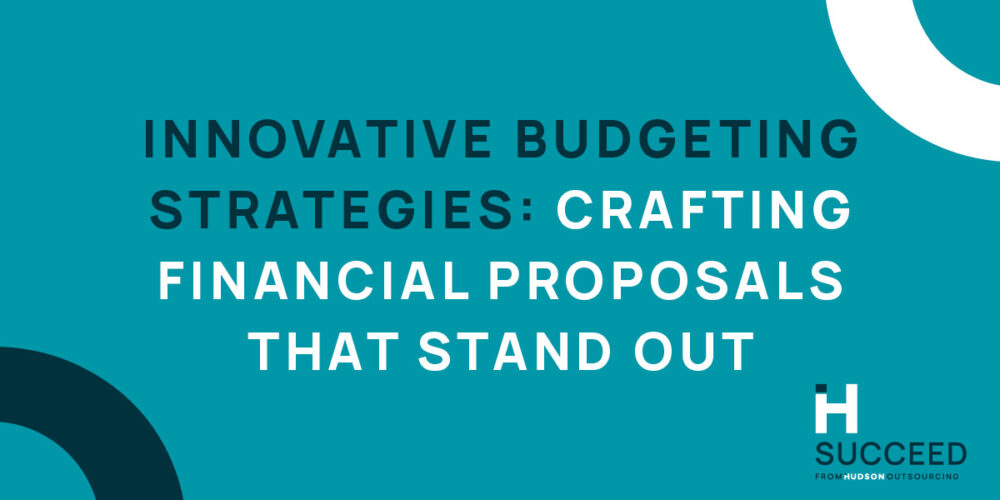Tendering for Contracts: Tips for Success
Last updated: May 6, 2022 @ 11:07 am
Tendering for contracts doesn’t need to be complicated.
There are many factors that lead people to assume that tendering is overly-complicated. This is usually down to the amount of time it takes to complete and how mundane the process is. Yes – there may be 5000 pages of specification, but who doesn’t enjoy a bit of light reading?
The three qualities you must possess when tendering are PERSISTENCE, PLANNING & POSITIVITY!
Let’s get past the moaning and downtrodden attitude and share our tips for success to ease the tendering process.
Is your business ready?
It is important that you regularly review the positioning of your business and associated strategies. This will help you figure out whether tendering for work is the right approach for you. Once you have identified your strengths and weaknesses, you can then decide whether it is better to be patient rather than waste valuable resources.
Finding the right tenders
There are thousands of online platforms, websites and communication systems that are evident across UK procurement. Some portals are outdated, complex and an all-around pain to navigate. Our team have used them all! Just make sure you know your key focus areas and process-knowledge for each website – these are working your way around:
Every website should have a ‘help’ section – don’t be afraid to use it.
Most tendering portals are extremely broad with hundreds upon hundreds of opportunities released daily!
Typically, opportunities are shared through problematic electronic algorithms across multiple platforms, either showing you irrelevant opportunities or no opportunities at all.
Our Hudson Discover portals keep it simple. Sign up to our industry-specific portals to receive tendering opportunities, sourced from the thousands of UK tender portals. These are manually searched and published on a daily basis by a team of procurement-based staff, not computers. We are the first company to do this and the feedback we have received has been fantastic.
Ensure you are being consistently realistic and don’t try to be overly ambitious. Tender proposals are very time consuming and can be costly. Look carefully at the tender requirements and specifications and make sure it is appropriate for you to undertake the contract.
Take the time to learn the terminology
The number of abbreviations flying around is becoming increasingly common in the procurement world. Terms like RFQs, ITTs, PQQs, DPS, and RFPs seems like they are only used to confuse us into a state of literary decline. Let’s simplify:
PQQ
Pre-qualification questionnaire – This is usually a stage-one questionnaire asking about specific company details like insurance and similar contracts you’ve worked on. Along with simple ‘yes and no’ questions making sure you’re not fraudulent and you pay your taxes, etc.
ITT
Invitation to tender – We can sometimes forget about the PQQ and jump straight into an ITT, which is usually where your quality and costing ratio comes in. This is where you price the job at hand and answer several technical questions about your ability to undergo the work in accordance with the detailed specification/scope of work.
RFP
Request for proposal – Very similar to an ITT, where cost and quality are assessed, however, RFPs are used in situations where the client either can’t – or don’t want to – define the scope of work up front. This means you need to be very descriptive and state a clear proposal to what’s needed.
RFQ
Request for quotation – The RFQ is a lot like the tender, however, typically smaller in size and scope. They’re often more geared towards clients who are seeking pricing information for a defined scope of work or supply of materials or equipment. Detailed proposals aren’t typically required here.
Framework
A framework agreement is an agreement between one or more businesses or organisations. If you enter into a framework agreement, usually you will be one of many suppliers contractually bound to deliver against buyer requirements.
DPS
Dynamic Purchasing System – A DPS is similar to an electronic framework agreement, with two exceptions. New suppliers can join at any time and can be run as a completely electronic process. DPS’ are used exclusively by public sector organisations and can be considered as a ‘competitive supply chain’, where all chosen supply chain members regularly compete for work via ITTs and RFQs.
Focus on what the buyer wants
Not everyone can write in an engaging, concise and straightforward manner. It’s easy to tell people what you do, but to put that on paper in a professional way, covering set criteria, is a major hassle for a lot of business developers. Don’t get stressed about it. Just remember three key focus areas when writing bids:
WHAT
What you have done or what you are going to do?
HOW
How you have done this (methodology) or how you are going to do it?
EVIDENCE
Hard-hitting proof that you have done it before – experience/evidence is key!
When tendering for contracts, the buyer must always be at the forefront of your mind. You need to know as much as you possibly can about the organisation and understand their objectives, mission and values. Create a section on this to show them that you are aware of their future developments and how you can contribute to them. You need to specifically demonstrate that you understand the requirements of the work and show case studies of similar work you have previously completed. Preparation of the tender response in line with the evaluation criteria is crucial. Concentrate on areas with the highest percentage weighting.
We offer bid writing services, using our procurement and tender experts with 60 years of experience in writing winning tenders.
Our team supports over 700 businesses globally and they proudly hold an 87% bid success rate. We offer five dedicated services to ensure that we can support businesses of all sizes, with varying levels of procurement experience.
Our bid writing services include:
Our Tender Ready programme was designed for businesses who are new to tendering for contracts. During the programme, our Bid Consultants will create and develop your corporate literature as well as professionally branding the documents. Once the programme is complete, you’ll have access to three days’ worth of bid consultancy.
Do you need support with a one-off bid? As part of our Tender Writing service, our Bid Consultants will not only write your tender responses, but submit the bid on your behalf. This is the perfect solution for businesses who need to tender for work but don’t have the resources in-house.
Before submitting any bid, we highly recommend having a second pair of eyes to review your content. During our Tender Mentor service, our Bid Consultants will assess your tender responses. They will check for any grammar or content mistakes that could result in lost marks. This means that you can submit an error-free bid with confidence.
Are you tendering for contracts but not seeing the desired success? We understand that this is frustrating because writing bid responses can be time-consuming. With Tender Improvement, we will assess your previous responses and highlight areas for improvement. Our Bid Consultants will then provide you with three days’ worth of bid consultancy.
Pricing
For time-based contracts, suppliers are usually asked to provide a proposed daily rate for the individuals involved in the project. When estimating the timescales, ensure you include the likes of time incurred on professional work as specified in the contract, meetings, time spent travelling, etc. Be careful and guarantee you achieve full cost recovery with a balance of value for money.
Check your work thoroughly
Be careful to always check and follow the submission guideline to ensure you have completed everything that has been asked for within the instructions. Always ask someone to proofread your document to be confident it flows and makes sense to someone who may not know your organisation.
Use your feedback
What is the point of spending all this time on a bid for it to lose and you to go back to hating the process? Don’t fret – use the feedback! If you didn’t win the work because you lack ISO accreditations (for example)– you know what to do! As part of our provision at Tender Consultants, we have a Tender Ready programme that you can use to make sure you maintain a good chance of securing key pieces of work.
All procurement-based processes that most people find difficult/complicated are because they don’t understand key tender-management processes. We launched our virtual training environment, Tender VLE, in May 2018. The platform focuses on everything tender and procurement based, including profound topics that will completely eradicate the notion that tendering and procurement is complicated.

Stay up to date by reading your tender notifications
Tender notifications: What are they?
This might seem like an obvious question, but it never hurts to establish the basics, especially when it comes to tendering! Most tendering procedures (especially in the public sector) these days are carried out through ePortals including:
- ProContract
- Intend
- Multiquote.
These are places where you will register your interest in opportunities, download documents and submit your tenders.
Tender notifications are, essentially, messages you will receive from a portal to say that something has occurred. This might be anything from a clarification being released by the buyer to notification that you have received a direct message.
How many tender notifications is normal?
If you have ever used a tendering portal, you will know just how many tender notifications can come through for just a single tender.
Some portals are more ‘enthusiastic’ than others. For instance, you are more likely to get multiple notifications from Multiquote than ProContract. However, you’ll get tender notifications to one degree or another, whichever portal you are using.
The number of notifications you receive per tender can vary depending on such things as:
- The portal
- The buyer (some buyers will frequently update the available documents, for instance, whereas others will hardly make a peep)
- The number of clarification questions raised by suppliers.
The real answer to the question ‘how many tender notifications is normal?’ is ‘how long is a piece of string?’. It really is entirely unique to each tender. Don’t panic if your last tender came with a whole slew of tender notifications, but your current one has hardly sent you any at all.
What’s so important about a tender notification?
So, we’ve established that every tender is different and, consequently, the number of tender notifications received will always vary. However, the number of notifications has no impact on discerning whether each one is important or not.
It is tempting (especially if you are receiving a daily tender notification) to dismiss them as unimportant and unnecessary. However, you should resist that approach.
The number of notifications for a tender (especially if they relate to clarifications) can be a good indication of how well put together the tender is. For example, if there have been 90 clarifications raised from suppliers, this shows that the requirements or actions for the tender haven’t been put together all that well.
In amongst all of the notifications, there might be a really important one, like ‘updated TUPE information’. This would be a terrible one to miss as your pricing would not be accurate without the correct TUPE data.
Regular emails announcing yet another tender notification might feel akin to receiving spam. However, it is much better to take a few minutes to check each one out than it is to miss an important tender update.
Okay, we get it – tender notifications are important. What shall we do about them?
It is really very simple. Most portals will send an email to the email address registered on the portal account every time the buyer wants to send you a tender notification.
If you don’t have a dedicated Bid Writer and multiple people within the company are working on your tenders, it would be highly advisable to create a single email address (i.e. tenders@yourcompany.co.uk). Give all concerned parties access to register on all portals.
This will mean that no tender notifications are at risk of being missed.
It is worth noting that not all portals will send you an email if there is a tender notification to view. If you have a live tender on a portal (either to be submitted or recently submitted) and haven’t received any emails from the portal, it would be worth logging in and checking the portal daily, just to be safe.
Once you have established that, yes, you have got a tender notification, then it is really just a case of thoroughly checking them out. Don’t send that email straight to trash. Follow the link and see what it has to tell you.
Most commonly, tender notifications refer to the following things:
- Changes to the tender documents, or additional supporting documents that have been uploaded
- The release of a clarification log, which is where the buyer has answered a set of supplier questions
- A change to the submission deadline (you really do not want to miss that one!)
- A request for you to clarify something about your tender submission
- A shortlist or result notice (also very important, and not checking this notification out could result in you missing out on a contract you were the first choice for).
As you can see, none of these tender notifications are things that you would want to miss!

How to find current tendering opportunities
A quick Q&A with our Hudson Discover Team…
The team here at Hudson have published many insightful blogs from our Tender Consultants with tips on how to successfully bid for works. But we haven’t shed light on our wonderful Hudson Discover Team.
Our team of experts often work behind the scenes to manage current tender opportunities for our client base, working tirelessly to ensure all tenders are easily accessible.
Additionally, the team provide support as the point of contact for our clients who are looking to complete a current tender opportunity.
Q: So, who are the Discover Team?
The Hudson Discover Team support Hudson’s clients. They help our clients use our Discover portals and access current tender opportunities.
The team is made up of:
- Marie Fisher – Head of Client Relations
- Rebecca Morland – Business Development Executive
- Jamie Peacock – Head of UK Sales
- Joshua Smith – Client Engagement Manager
- Melanie Robertson – Discover Administrator
- Charlotte Jarvis – Digital Communications Manager.
Q: What does the team do?
The Hudson Discover Team are the point of contact for many of our clients looking to source current tender opportunities.
After initial contact is made with Hudson, the team will introduce the clients to our range of Hudson Discover portals. They ensure our clients can access the portal most relevant to their business and demonstrate how to navigate the site to find current tenders.
Charlotte Jarvis is our digital marketing expert, heading up our Marketing Team. She and the team additionally manage the online chat functions for our clients and visitors to the Discover sites. Charlotte also works to find private tendering opportunities for our clients by connecting with buyers in the private sector via digital campaigns.
Marie is responsible for maintaining ongoing relationships with our client base and ensuring they are kept up to date with current tender opportunities. This is achieved through regular contact with emails, newsletters and direct contact.
Q: What are the portals?
Hudson Discover is a unique suite of 11 tendering portals, which show all current tender opportunities for our clients. These are split across a range of industries:
Q: How can clients use the portals?
When new customers engage with the Hudson Discover Team, they are given a demonstration of their most relevant tender portal. The team is on hand to answer any questions they may have.
Once they have access to the tender portals and have seen the current tenders, Rebecca and Marie are on hand to discuss how Hudson can best suit their needs.
We are happy to provide complimentary access to the most suitable portal for you for one whole day. This gives you the opportunity to get to grips with the portal and begin searching for suitable tenders in real-time from the list of current opportunities.
Remember that our Hudson Discover Team are always on hand to provide support. As well as hints and tips to help you with your bid management.
Q: How do I see current tenders?
Once in the tender portal specific to your business needs, you can search for current tender opportunities which meet your requirements. This is achieved by using the built-in search function.
For example, if you’re an IT company looking for current tender opportunities, you can search for any keywords specific to your business model, such as ‘software’. This will bring up all current tender opportunities matching that keyword.
If you feel there are too many keywords to search across, the portal also allows you to search by:
Or, of course, any combination of the above.
Q: How can I get help?
If you’re unsure about accessing current tender opportunities or tendering as a whole, the team at Hudson can help.
You can get in touch with our Hudson Discover Team through many different methods:
- Check out our page for an introduction to each of our tender portals. This will help you identify which portal is most suitable for your needs.
- When you’re on our website, you can use our live chat function to talk directly with the Hudson Discover Team. Here you can ask any questions on how to access current tender opportunities.
- If you’re more of a talkative type than a writer, that’s OK too! You can call our team for a chat on 0203 051 2217. We’re always happy to talk through your requirements.
- Alternatively, you can email the team. Just send any questions you might have about current tenders to hi@tenderconsultants.co.uk.
Q: What can Hudson Discover do for me?
To put it simply, Hudson Discover is the easiest way to find current tender opportunities which meet your business requirements. Our industry-specific portals are user-friendly, allowing you to quickly search for the right tender opportunity for your current requirements.
Hudson’s Discover Team also maintain all our portals daily, updating each industry-specific portal with new tender opportunities every day. This means our customers have access to a constantly updating set of current tenders to choose from.
How to maximise your tender portal membership with our Account Managers
Wham, bam, thanks for your money – goodbye! Does this sound familiar? After signing up to some online portals, it is easy to feel forgotten about and quickly become disgruntled with the whole tendering debacle.
We know that tendering can be complicated and that not everyone is a bid management expert. That is why when you sign-up to one of our tender opportunity tracking platforms, you will be assigned a dedicated Account Manager.
This is where you can really maximise your membership!
As part of your subscription, your Account Manager will ensure that you receive filtered daily bulletins, specific to your sector – as well as access to the online, member’s portal.
Your tender portal Account Manager
Your Account Manager is directly contactable, five days a week, to deal with any queries you might have. This service is not only limited to tender portal tips, but our Account Management Team can also assist you if you are needing to advertise a tender opportunity as a buyer.
For example, if you have work that needs to be put out to tender, but you don’t have a portal to take the submissions and host the clarification questions, etc, this can all be done via our portal, with access to industry-specific suppliers. Simply contact one of our Account Managers and you’re on your way!
If it is the actual tendering process itself that is proving to be problematic, we can help with that too! For examplee, if you’re bidding but not winning, or maybe you’re new to tendering and don’t know where to begin. Our dedicated Account Managers will be able to refer you directly with one of our Bid Writing Consultants, who are experts in all tender-related projects.
Your Account Manager is part of your subscription, so make sure that you utilise this service to the full potential!
Additional support
If you only need the assistance with PQQs or SQs we can help. Send the information over to us and we can provide you with a quote for the work involved.
Discover Elite
Upgrading to Discover Elite can help optimise your tendering efforts – even when you’re busy. Our two new time-saving tools can improve your competitor awareness and success rate when bidding for a contract.
The Ultimate Time Saver package offers your business:
- A maximum of five tender breakdowns per month.
- An annual subscription to a maximum of two Hudson Discover sector-specific portals. This option can help businesses that overlap two industries such as Healthcare and Technology, for example.
- Pre-market and award engagement notices monitored on your behalf.
- Buyer portal management, including registration, password management, downloading documents and assessing viability based on your bid or no-bid strategy.
- Weekly phone calls with your dedicated Account Manager to discuss viable tendering opportunities.
The Become a Pre-Bid Master package also includes:
- All of the above.
- Up to seven tender breakdowns per month.
- A Bid Strategy delivered by a Senior Bid Manager with a minimum of five years of experience. It will also be managed by our Global Bid Director.
Contact us to find out how we can help your business grow.
Further support
If you require any further support with tendering for contracts, please call or email our expert team. Our expert Bid Writers will be happy to support you at any stage of your tendering journey.
Find more helpful tips and advice in our blogs. We cover topics including:







